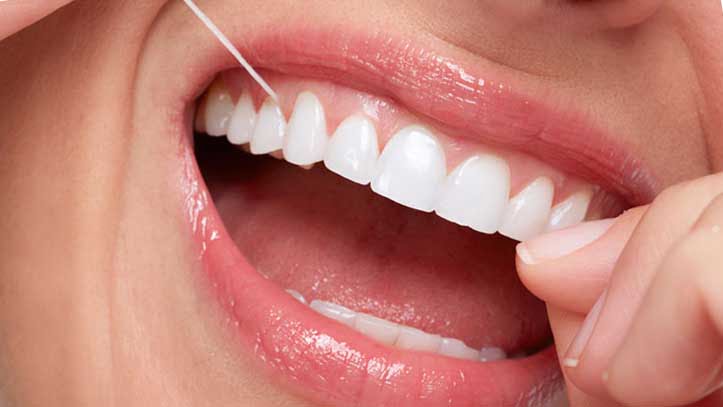How to Floss
Why do I need to floss if brushed twice daily? In Malaysia, study has shown that only about 10% of the population floss daily. Brushing alone is not effective to remove all dental plaque especially at interdental spaces between teeth. You are at risk to miss up to 40% of tooth surfaces if you don’t floss. Therefore, flossing is very important to prevent cavities and gum diseases.

Flossing technique
- Pull out 30cm long of dental floss
- Stand in front of a mirror so you can watch where the floss is going
- Wrap the ends of the floss around your middle fingers to secure it
- Gently press the floss down, in between two teeth, and slide the floss up and down against sides of both teeth.
- Clean the floss under running water or use the clean section of the floss
- Move to the next teeth, and repeat the process.
- To reach the back teeth or molars, manipulate floss using index fingers only and make the floss a “U” shape to reach the back.
Types of floss
- Waxed floss – fits into tight space
- Unwaxed floss – best for rough edge
- Tape floss – good for larger gap
Flossing with braces
If you are wearing braces, it might be slightly tricky to floss. Some tools might be useful :
- floss threader, to gets floss under wires
- water flosser, an handheld device that sprays water jet
- interdental brush, a mini brush to clean behind the wire and around brackets
Floss before or after brushing?
For beginner, it might be useful to floss after brushing. So you can appreciate how many area and where you missed in the brushing. However, it is actually recommended to floss before brushing. The reason is flossing will first dislodged the stuck food debris and plaque. Then, brushing action will remove the loose particle out of the mouth. In addition, it also enable the fluoride in the toothpaste to reach the interdental area.
We recommend to floss once daily before sleep.
Flossing FAQ
Bleeding when flossing
It is common to have slight bleeding from the gum especially if you are new to flossing. Continue to floss daily. However, if the problem persists, check with your dentist to rule out gum disease.
Can flossing cause gap between teeth?
If done properly using dental floss, flossing will not cause or widen gap between teeth. Conversely, flossing removes plaque and prevents gum disease which is the most common cause of developing gap between teeth.
